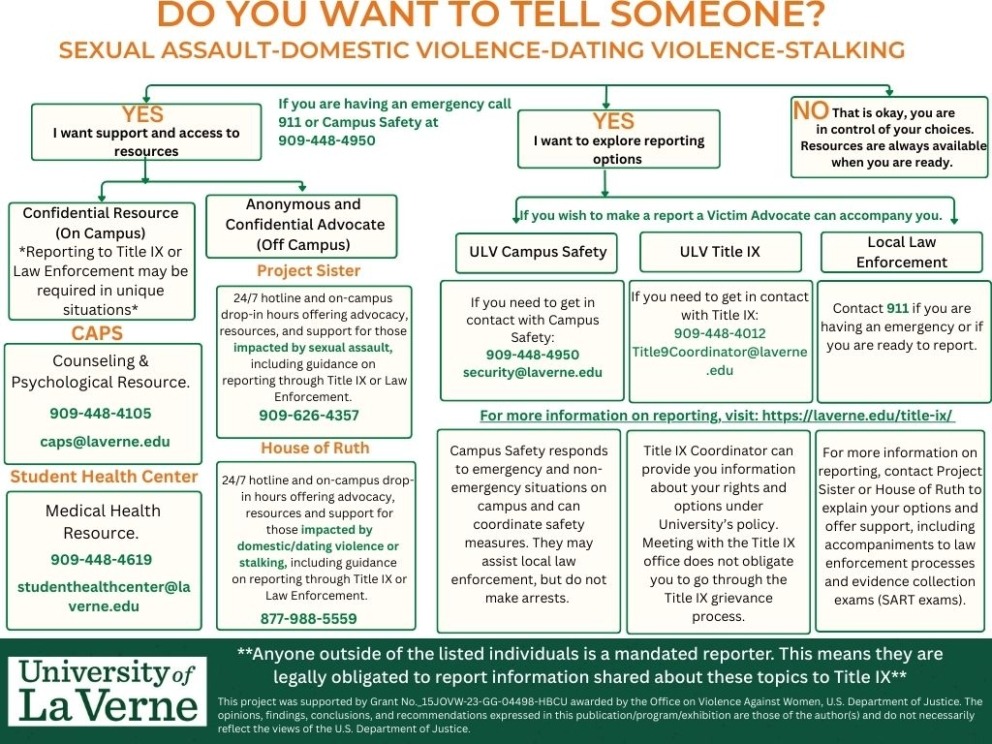
**Disclaimer: If you are having an emergency and need immediate help, please contact 911.**
Deciding to share your experience can feel overwhelming, and that’s okay. You are in control of who you tell, when you share, and how much of your story you decide to disclose. Below are a few things to consider as you make your choice:
-
Talk to A Friend or Peer
- Sometimes the first step is telling someone you trust.
- They may not have all the answers but can support you in finding help.
-
Confidential Conversations
- If you want to share your experience without starting a formal process, there are confidential resources available.
- Please refer to the on-campus resource tab for more information.
-
Anonymous & Confidential Reporting Options
- Please refer to the off-campus resources tab for more information.
What to Expect If You Report
- You’ll be connected with support services and informed of your rights and options.
- You will not be forced into a process that you are not comfortable with.
- You can have a Victim Advocate with you for emotional support throughout the entire process.
- Reporting may open formal options like no-contact orders or protective measures; a Victim Advocate can explain these in more detail. Off-campus resources.
Additional Reminders:
- You’re not alone: Support is available whether or not you decide to report.
- Safety first: If you feel unsafe, reach out to Campus Safety or dial 911.
- Document events: Keeping notes, screenshots or other evidence can be helpful if you decide to report later.
- Confidentiality matters: Victim Advocates and counselors can help you understand what information stays private and help guide you through your healing journey.